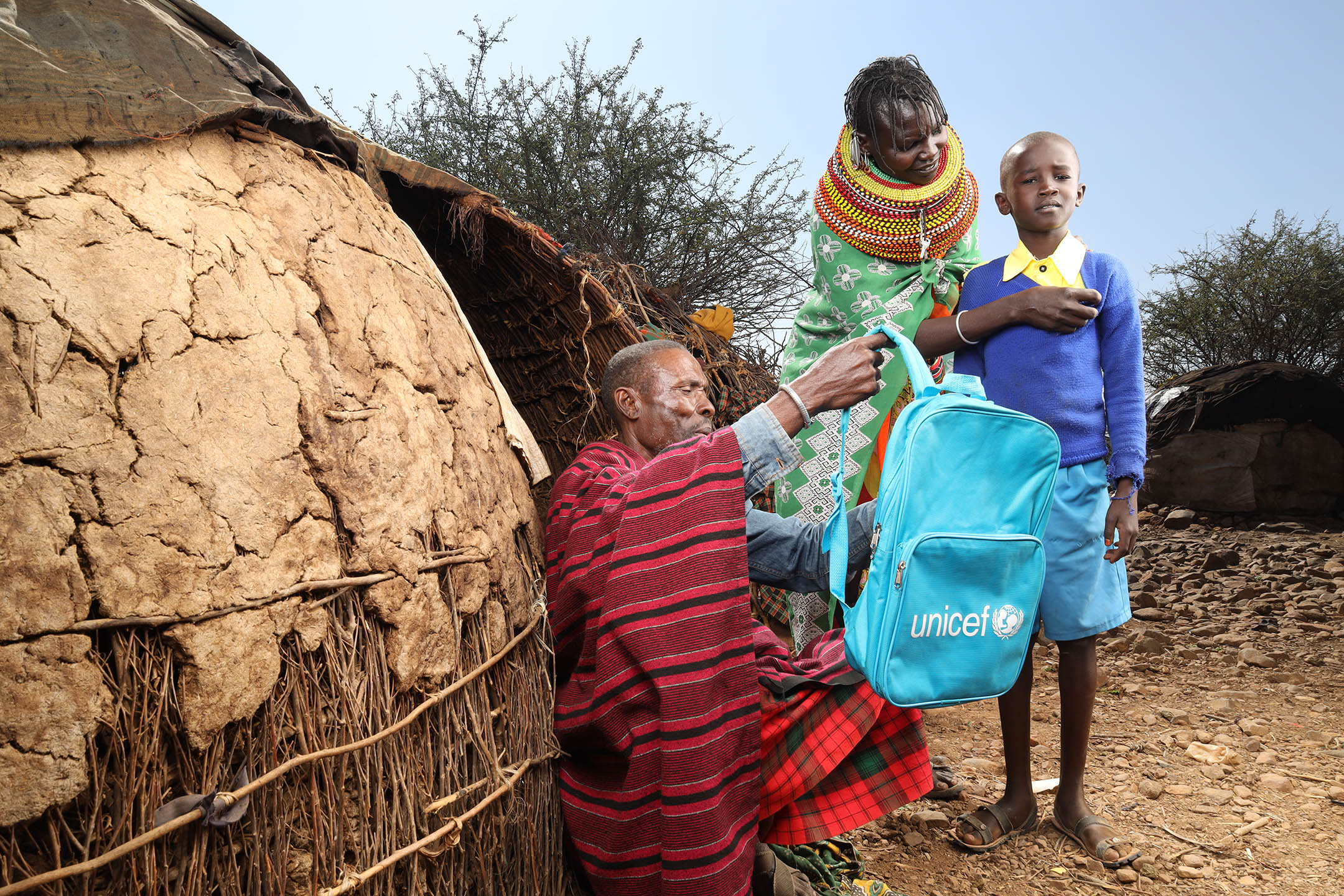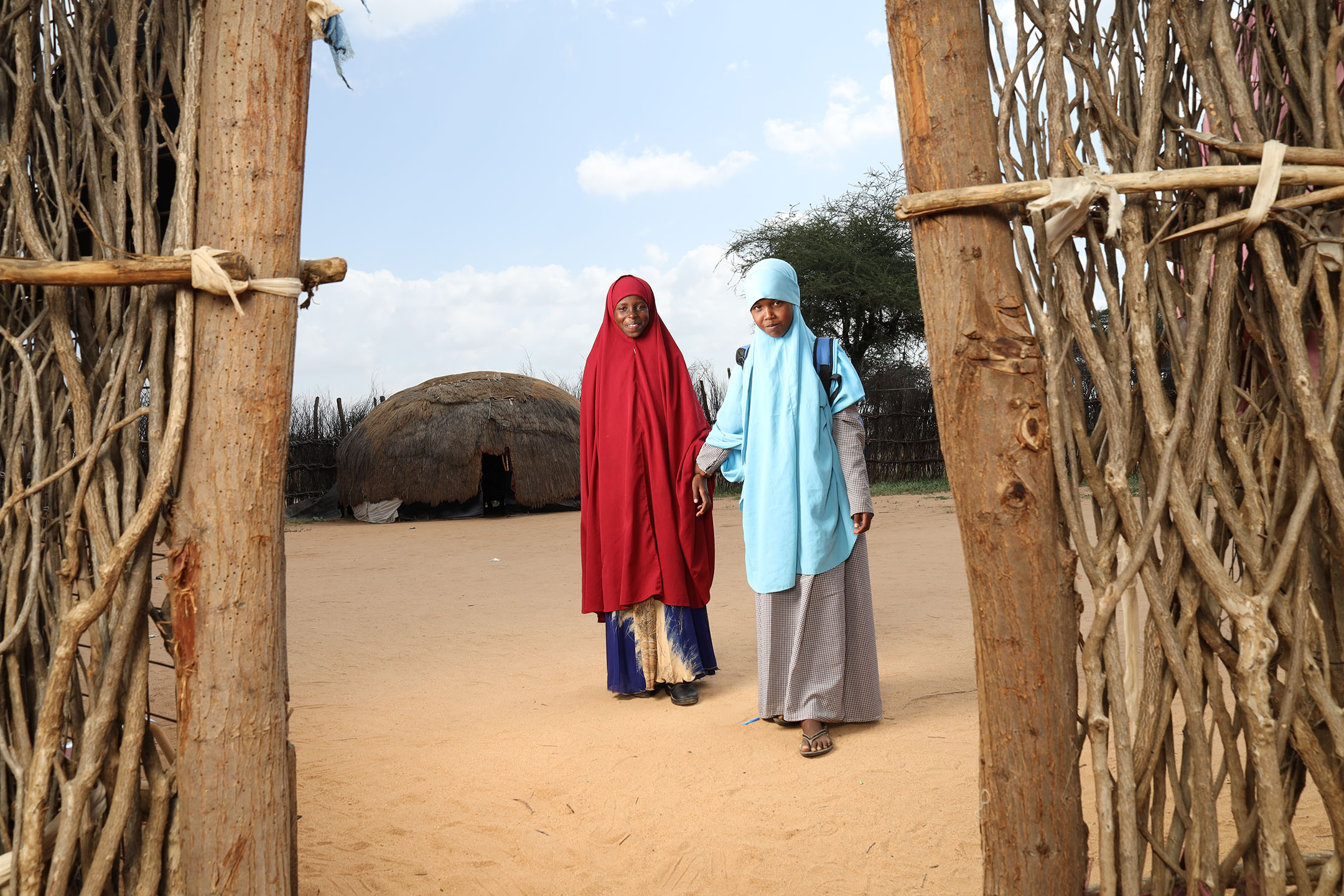In Kenya’s pastoralist northern frontier, it is routine for young girls, some aged 9-year-old, to be given in marriage for wifely purposes. It is a cultural practice running as far back as living memory goes.
“People can react in shock but this is an everyday life occurrence in pastoralist communities like mine,” says Halima Khaliya, a presenter with Wajir Community Radio. “For pastoralist communities, even a 9-year-old girl can be married off if a man asks for her hand. This is considered an advantage, better than having the girl in school.”
Such an event happened recently when the Kenya government’s Children’s Department got an urgent call to run to the rescue of a 14-year-old girl who was removed from school to be married off. The story has its origins in the “Come Twende Shule” radio broadcast.
“We’ve been airing the message so much and the community has listened so keenly that when people heard that the girl was being married off, they called the radio station to report. We in turn got the government to step in and the girl has been saved.”

Though the story ends on a positive note, it is a drop in the ocean. Many under-age girls are getting married off or impregnated. Halima provides some insight: “Our culture is, for the most part, conservative and protective but technology has created fissures by which harm can reach vulnerable members. Throw in Covid 19 and lots of girls who were previously relatively safe and protected in their fathers’ homes could now be reached by phone and enticed to go meet some of the perpetrators. The consequence has been an explosion in teenage pregnancies.” And with it incidents of girls dropping out of school.
As with most conservative cultures, there is traditionally no question of a young woman falling in love with a man of her choice and sailing off to a romantic marriage. In the Somali culture, the parents determine when and to whom a female offspring gets married. Considered in isolation, this practice cannot be faulted. However, serious health problems spring up when the females in question are under-age. “They are not women; they are children. Their bodies are not yet developed to carry a child and when the time for childbirth comes, many of them have to undergo Caesarean Section,” Halima narrates. Added to the fact that adults don’t traditionally talk to the youth about sex, the explosion of pregnancy among female children is alarming the community.
Prompted by the Come Twende Shule broadcasts, the dismay is motivating a growing number of community members to do the previously unthinkable: report marriages of under-age girls to the media and the government.
“Now we are saying on radio that pregnancy shouldn’t keep a girl out of school. Since the programme went on air, there are visible changes in the minds of members of the community. This contributed to the girl’s rescue and subsequent return to school.”
Halima describes as extreme the extent of incidents of Out-Of-School Children. The region is behind every other part of Kenya in enrolling and keeping children in school. The worst parts in Wajir are the Tarbaj and Koros Harar sub-counties, which the Ministry of Education has flagged.
A contributing factor is insecurity. The region borders Somalia. The puzzle for security agencies and members of the community is where the children disappear to. There are suspicions that poor security along the porous border is a factor in the disappearance of children and the pregnancy of girls. There have been cases of teachers who faced accusations of impregnating under-age girls fleeing across the border into Somalia. Another is the pastoralist lifestyle. During drought, families looking for water and pasture pull children out of school as they move to new places.
“The Ministry of Education and other stakeholders are working on the problem. UNICEF in particular, as part of the Come Twende Shule initiative, is actively seeking solutions,” Halima concludes.



